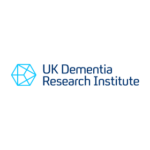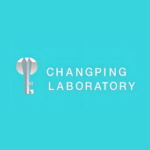Jobs
Find all the latest jobs in dementia research, in the UK and across the world.
Use our job search tool below to list the current vacancies that are right for you, we also suggest following us on X to get selected alerts as new jobs are added every day. You can also advertise your position free of charge.
-

PhD: The Role of the Endosomal System in Alzheimer’s Disease
University of Liverpool Closing date: 31st JanuaryLiverpool L69 7ZX- PhD
-

Impact Communications Officer
Alzheimer's SocietyAnywhere- Charity
-

Research Associate: Nanomedicine
The University of Manchester Closing date: 2nd JanuaryManchester M13 9PL- Research Associate
-

Research Assistant – Optimising medications for people living with dementia
University of Oxford Closing date: 7th JanuaryOxford OX1 2JD- Research Assistant
-

PhD: Modelling of imaging and biomarkers in Lewy body dementia
University College London Closing date: 31st JanuaryLondon WC1E 6BT- PhD
-

Research Associate: 3D organoid-based disease modelling in ALS
University of Cambridge Closing date: 26th JanuaryCambridge CB2 1TN- Research Associate
-

Research Associate: Molecular mechanisms of Parkinson’s
University of Cambridge Closing date: 12th JanuaryCambridge CB2 1TN- Research Associate
-

Research Laboratory Technician
University of Cambridge Closing date: 26th JanuaryCambridge CB2 1TN- Research / Lab Technician
-

Research Associate: Conversational Engineering
UK Dementia Research Institute - Imperial College London Closing date: 12th JanuaryLondon SW7 2AZ- Research Associate
-

Research Assistant: Dementia Community Research Network
King's College London Closing date: 5th JanuaryLondon WC2R 2LS- Research Assistant
-

PhD: ALS – Integrating Genomic and Epigenomic Data from Diverse Populations
King's College London Closing date: 30th JanuaryLondon WC2R 2LS- PhD
-

PhD: Integration of epigenetic profile in MND clinical trials design
King's College London Closing date: 30th JanuaryLondon WC2R 2LS- PhD
-

PhD: Multiomics Scores for Predicting Age of Onset in ALS
King's College London Closing date: 30th JanuaryLondon WC2R 2LS- PhD
-

PhD: Immune Biomarkers in MND
King's College London Closing date: 30th JanuaryLondon WC2R 2LS- PhD
-

Postdoc: AI / Biology for Aging & Alzheimer’s Disease
University of Luxembourg Closing date: 10th February2 Av. de l'Universite l 4365, Esch-Belval Esch-sur-Alzette, Luxembourg- Postdoctoral Posts
-

Postdoctoral Research Associate: Parkinson’s Biomarkers
Queen Mary University of London Closing date: 2nd JanuaryLondon E1 4NS- Postdoctoral Posts
-

Postdoctoral Researcher: Social health and sex differences
Karolinska Institutet Closing date: 3rd JanuarySolna, Sweden- Postdoctoral Posts
-

Assistant Professor: Clinical Neuropsychology (Tenure Track)
University of California Irvine Closing date: 14th JanuaryIrvine, CA 92697, USA- Assistant Professor
-

Post-Doctoral Researcher: Statistical Genomics and Machine Learning
University of Oxford Closing date: 10th JanuaryOxford OX1 2JD- Postdoctoral Posts
-

Clinical Research Associate
University of the West of England Closing date: 13th JanuaryStoke Gifford, Bristol BS16 1QY- Clinical Researcher
-

PhD: Processes driving neurodegeneration and cognitive impairment in Lewy body dementia
Newcastle University Closing date: 31st JanuaryNewcastle upon Tyne NE1 7RU- PhD
-

Research Assistant / Fellow: Community and Primary Care Research Group
University of Plymouth Closing date: 5th JanuaryPortland Square, Plymouth PL4 8AA- Research Fellow
-

Lecturer in Dementia Studies
University of Tasmania Closing date: 20th JanuaryWivenhoe Tasmania 7320, Australia- Lectureship
-

Research Assistant: Novel approaches to treat expanded repeat disorders
UK Dementia Research Institute - Cardiff University Closing date: 2nd JanuaryPark Place, Cardiff CF10 3AT- Research Assistant
-

Associate or Full Professor Neuroimager Faculty Position
Northwestern University Closing date: 6th MarchEvanston, IL 60208, USA- Associate Professor
-

Research Associate: AI for the diagnosis and prognosis of dementia
University of Cambridge Closing date: 29th DecemberCambridge CB2 1TN- Research Associate
-

Data Research Assistant
UK Dementia Research institute - University College London Closing date: 7th JanuaryLondon WC1E 6BT- Data Analyst
-

Postdoctoral Fellow: Immune system in health and disease
Francis Crick Institute Closing date: 5th JanuaryLondon NW1 1AT- Research Fellow
-

Postdoct Researcher: Computational Neurobiology
VIB Closing date: 3rd FebruaryAntwerp, Belgium- Postdoctoral Posts
-

PhD: Diagnostic Delays in Lewy Body Dementia
Newcastle University Closing date: 31st JanuaryNewcastle upon Tyne NE1 7RU- PhD
-

Research Fellow: Hippocampal-entorhinal neural networks
UK Dementia Research Institute - University College London Closing daye: 2nd JanuaryLondon WC1E 6BT- Research Fellow
-

Clinical Research Fellow: Parkinson’s disease group
Queen Mary University of London Closing date: 2nd JanuaryLondon E1 4NS- Clinical Research Fellowship
-

PhD: Mechanism Underlying Diet Induced Cognitive Impairment
University of Bradford Closing date: 8th JanuaryBradford BD7 1DP- PhD
-

Clinical Lead, National Audit of Dementia (x2 posts)
Royal College of Psychiatrists Closing date: 20th DecemberPrescot Street, London E1 8BB- Clinical Researcher
-

Tenure-Track Position – Neurodegenerative disease Translational Research
Carver College of Medicine, UI Closing date: 1st FebruaryIowa City, IA 52242, USA- Associate Professor
-

Postdoct Scientists: Cardiovascular Biology Research Program
Oklahoma Medical Research Foundation (OMRF) Closing date: 28th DecemberOklahoma City, OK 73104, USA- Postdoctoral Posts
-

Researcher: Genetic Epidemiology / Statistical Genetics
University of Oxford Closing date: 13th JanuaryOxford OX1 2JD- Postdoctoral Posts
-

Research Assistant: Multifunctional robots in occupational therapy and dementia
Edinburgh Napier University Closing date: 6th JanuaryEdinburgh EH11 4BN- Research Assistant
-

Postdoctoral Research Associate: Lothian Birth Cohorts Group
The University of Edinburgh Closing date: 13th JanuaryEdinburgh EH8 9YL- Research Associate
-

Research Associate: Intracellular processing of Alzheimer’s amyloid
University of Cambridge UK Dementia Research Institute - University of CambridgeCambridge CB2 1TN- Research Associate
-

Group Leader Research Fellowship Sponsorship Scheme
University College London Closing date: 5th JanuaryLondon WC1E 6BT- Research Fellow
-

Research Associate: Dementia care in Care Homes
University of East Anglia Closing date: 16th JanuaryNorwich NR4 7TJ- Research Associate
-

PhD: Mitochondrial RNA metabolism in Lewy body dementia
University of Nottingham Closing date: 31st JanuaryNottingham NG7 2RD- PhD
-

Tensure Track Position: Neurodegenerative disease
The University of Iowa Closing date: 26th JanuaryIowa City, IA 52242, USA- Associate Professor
-

PhD: Imaging vascular dysfunction in dementia using quantitative MRI
The University of Manchester Closing date: 20th DecemberManchester M13 9PL- PhD
-

PhD Studentship: Dementia Community / Migrants / Workplace
University of Plymouth Closing date: 22nd JanuaryPortland Square, Plymouth PL4 8AA- PhD
-

PhD Studentship: Memory Services / Diagnosis / Annual Review
Leeds Beckett University Closing date: 22nd JanuaryLeeds LS1 3HE- PhD
-

PhD Studentship: Dementia Care / Inequalities / Social Care
London School of Economics Closing date: 22nd JanuaryLondon WC2A 2AE- PhD
-

PhD Studentship: Dementia Care / End of Life / Social Care
University College London Closing date: 22nd JanuaryLondon WC1E 6BT- PhD
-

PhD Studentship: Dementia Care / Diagnosis Project Options
Queen Mary University of London Closing date: 22nd JanuaryLondon E1 4NS- PhD
-

PhD: Modulating treatments to improve clinical outcomes in intracerebral haemorrhage
The University of Edinburgh Closing date: 20th DecemberEdinburgh EH8 9YL- PhD
-

PhD: Impact of brain mineral deposition as a marker of vascular dysfunction
The University of Edinburgh Closing date: 20th DecemberEdinburgh EH8 9YL- PhD
-

PhD: Cerebrovascular dysfunction in small vessel disease
Imperial College London Closing date: 20th DecemberLondon SW7 2AZ- PhD
-

Laboratory Manager
Buck Institute for Research on Aging Closing date: 14th JanuaryNovato, CA 94945, USA- Other
-

PhD: Using UK Biobank to understand the links between hypertension and dementia
The University of Manchester Closing date: 20th DecemberManchester M13 9PL- PhD
-

PhD: Unblocking blood vessel occlusion in dementia
The University of Manchester Closing date: 20th DecemberManchester M13 9PL- PhD
-

PhD: Investigating Mechanosensitive Ion Channels’ Role in Dementia
The University of Manchester Closing date: 20th DecemberManchester M13 9PL- PhD
-

PhD: Cerebral microinfarcts in a mouse model of hypertension
The University of Manchester Closing date: 20th DecemberManchester M13 9PL- PhD
-

Postdoc: Antisense therapies for familial Alzheimer’s
VIB Closing date: 23rd JanuaryLeuven, Belgium- Postdoctoral Posts
-

Tenure Track Positions: Molecular basis of neurological disorders
University of South Florida Closing date: 20th DecemberTampa, FL 33620, USA- Associate Professor
-

Faculty Position: Neuroimmunology Research
The Mayo Clinic Closing date: 24th DecemberScottsdale, AZ 85259, USA- Associate Professor
-

PhD: Exploring the role of the astrocyte-leptomeningeal vessel interface in dementia
The University of Edinburgh Closing date: 20th DecemberEdinburgh EH8 9YL- PhD
-

PhD: Oligodendrocyte-microglial interactions
The University of Edinburgh Closing date: 20th DecemberEdinburgh EH8 9YL- PhD
-

PhD: Role of arterial smooth muscle and pericyte dysfunction towards brain waste clearance in Alzheimer’s
The University of Manchester Closing date: 20th DecemberManchester M13 9PL- PhD
-

PhD: Vascular and Immune system Biomarkers in Alzheimer’s
The University of Manchester Closing date: 20th DecemberManchester M13 9PL- PhD
-

Senior Postdoc Researcher: Nnew approaches to target LRRK2
University of Dundee Closing date: 28th NovemberDundee DD1 4HN- Postdoctoral Posts
-

PhD: Lipid-dependent regulation of inflammation in vascular dementia
The University of Manchester Closing date: 20th DecemberManchester M13 9PL- PhD
-

PhD: The role of type 2 diabetes, retinal vasculopathy and inflammation in post-stroke cognitive decline
St George’s, University of London Closing date: 20th DecemberLondon SW17 0RE- PhD
-

PhD: The Gut-Brain-Axis
University of Birmingham Closing date: 16th JanuaryBirmingham B15 2TT- PhD
-

PhD: Chronic pain, analgesic prescribing & cognitive decline
The University of Edinburgh Closing date: 13th JanuaryEdinburgh EH8 9YL- PhD
-

Dean of the Faculty of Social Sciences
University of Stirling Closing date: 20th DecemberStirling FK9 4LA- Associate Professor
-

PhD Studentship: Human vascular disease and dementia
The University of Edinburgh Closing date: 13th JanuaryEdinburgh EH8 9YL- PhD
-

Research Associate: Genomics
Changping Laboratory Closing date: 12th JanuaryBeijing, China- Research Associate
-

Postdoc: Metabolic and Vascular Health
Helmholtz Munich Closing date: 11th JanuaryIngolstädter Landstraße 1, Oberschleißheim-Neuherberg, Germany- Postdoctoral Posts
-

125th Anniversary Fellows and Chairs
University of Birmingham Closing date: 12th January 2025Birmingham B15 2TT- Postdoctoral Posts
-

Research Associate: Neuroimmunology
The University of Manchester Closing date: 15th JanuaryManchester M13 9PL- Research Associate
-

PhD: Brain Plasticity, Degeneration and Regeneration
University of Birmingham Closing date: 11th FebruaryBirmingham B15 2TT- PhD
-

Professor in Neuroimmunology
Salk Institute Closing date: 6th February 2025La Jolla, CA 92037, USA- Professor
-

Postdoctoral Researcher: Statistician / Mathematician / Bioinformatician
University Hospital of Muenster Closing date: 3rd JanuaryMünster 8149, Münstertal-Untermünstertal, Germany- Postdoctoral Posts
-

Postdoctoral Researcher: Computational Neurobiology Lab
VIB Closing date: 3rd January9052 Ghent, Belgium- Postdoctoral Posts
-

UCL Group Leader Research Fellowship Sponsorship
University College London Closing date: 5th JanuaryLondon WC1E 6BT- Research Fellow
-

PhD: Empowering families affected
The Open University Closing date: 7th JanuaryKents Hill, Milton Keynes MK7 6AA- PhD
Advertise your job
Submit your own vacancies to our listings.
Follow us on YouTube
Amelia Robson - Working on the road: Benefits of traveling to meet participants
Dementia Researcher 13/12/2024 10:55 am
Exploring Clinical Trials Design
Dementia Researcher 05/12/2024 1:00 pm

